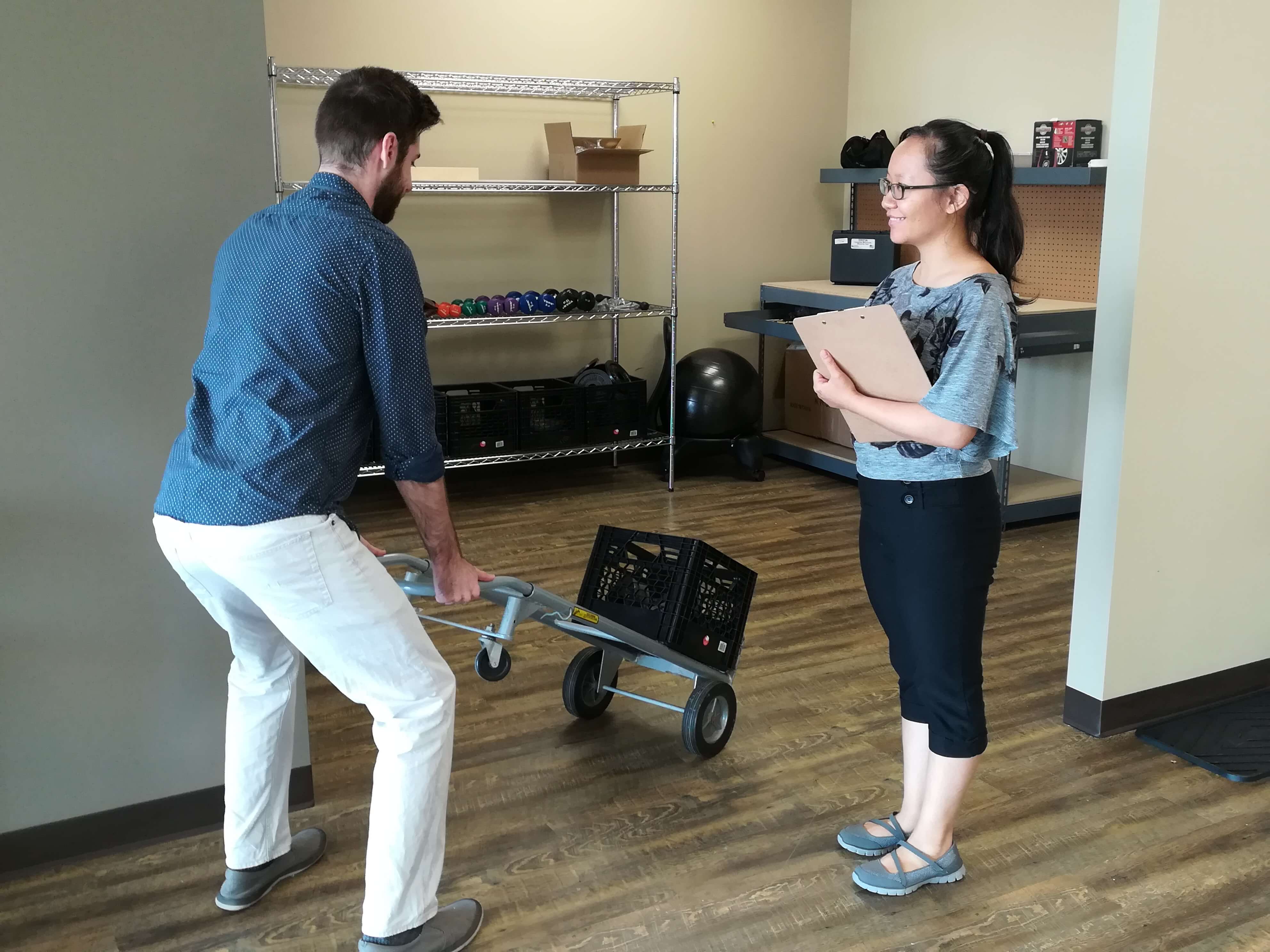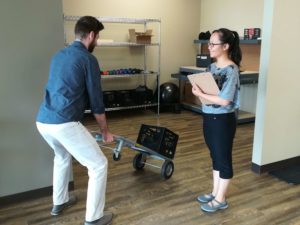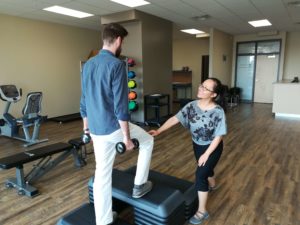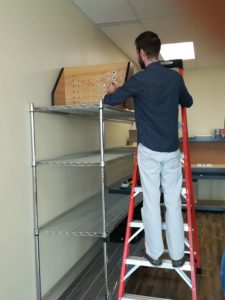- Persistent pain program
- Return to work physical readiness program
The program for persistent pain and physical preparation for return to work are offered by an interdisciplinary team at a specialized center, the CECFI:
CECFI
Phone number : 514-316-2888
Fax : 514-366-8801
Address : 4750 rue Jarry Est, #207
E-mail : info@cecfi.ca
Opening hours: Mon-Fri, 9:00 AM - 5:00 PM
Contact: Mr Bassem Harb, OT
Clients CNESST / SAAQ / IVAC / Insurers
This program is intended for clients / insured persons who have suffered a work or injury accident and who have persistent symptoms of pain and / or disability. Persons who meet one of these criteria may be referred:
- Any subacute musculoskeletal lesion deemed to be at risk of becoming chronic
- Persistent pain of more than 3 months following a musculoskeletal injury
- Chronic pain syndrome (eg fibromyalgia)
- Physical deconditioning and persistent musculoskeletal disorders as barriers to return to work
Context
In case of persistent pain as a result of musculoskeletal injury, return to work may not occur within the first 3 months. Many factors are associated with a higher risk of chronic pain and disability. A long-term stoppage of work is one such factor. Indeed, the sustained inactivity causes a more generalized physical deconditioning, not strictly isolated to the wounded region. This increases the pain, as well as the distress of the clients.
CECFI - A specialized center
The CECFI's 2ned line FCD program is specifically designed to promote the rehabilitation and sustainable return to work of workers who have persistent physical symptoms or disabilities preventing the return to work, or, failing that, when they are at risk of chronicization.
Following a comprehensive biopsychosocial assessment and measurement of the functional capacities specific to the worker, individual and group education sessions address psychosocial factors and promote better self-management of symptoms. A physical reactivation is initiated and this progresses to simulations of work tasks, with the objective of resuming pre-injury work, or, in the event of a loss of employment, gaining employability, even if there may be some residual limitations or pain. Support can be provided in the workplace to encourage transfer of learning. Physical reconditioning and teaching throughout the program also reduce the risk of relapse.
Our program is covered by CNESST, SAAQ, IVAC, and private insurers.
The three dimensions of our intervention
1- Education
Based on the Pain Neurophysiology Education (PNE) method, which benefits from the best scientific evidence to address psychosocial factors in the context of persistent pain.
It consists of educating clients on the chronic pain phenomenon, to allow better understanding and management of the symptoms and physical efforts, and to empower the client in his rehabilitation process.
In addition, the program includes educational workshops on:
- Sleep
- Occupational schedule
- Stress & rumination
- Mindfulness
- Resuming physical and social activities
Because a healthy lifestyle favorably influence recovery prognosis
2- Physical capacity development
Systematic desensitization and graded exercises
- Increases physical abilities, and decreases pain gradually
- Regain of amplitudes of movement, muscle strength and endurance, aerobic capacity, balance, etc.
- Physical preparation is specific to the requirements of the job
- It includes simulations of work tasks as therapeutic exercises
3- Progressive return to work
Individualized planning of the protocol and the degree of support and follow-up to ensure the success of the approach
A proven model
This approach :
- Provides reassurance to the client and gives him tools promoting adherence to the program and making him more autonomous in his rehabilitation process
- Develops physical abilities to meet the requirements of the pre-injury or targeted work
- Prepares and ensures a successful return to work
In each dimension, interventions at the CECFI are adapted to each client to maximize the speed of their recovery and thus allow the shortest possible delay before a successful return to work
Treatment team
The CECFI interdisciplinary team is composed of: kinesiologist, occupational therapist, physiotherapist and psychologist.
The team can use the following external resources to meet individual needs and ensure a comprehensive approach to treatment:
- Orthopedist
- Neurologist
- Rheumatologist
- Social worker
- Dietitian
Contact / Referencing
A client can be referred to the functional abilities development program by:
- CNESST
- SAAQ
- IVAC
- Private insurers
- Physicians
Equipments
(non-exhaustive list)
Physical rehabilitation
- Rooms with beds
- Moving mirror
- Thera-bands
- Foam cylinders
- Semi-cylinder
- Flex-bar
Development of physical capacity
Complete selection of cardiovascular equipment
- Treadmill
- Stationary bike
- Recumbent exercise bike
- Elliptical
Multi-purpose training accessories
- Elastics
- Dumbbells
- Wrist & ankle weights
- Barbells
- Weighted exercise balls
- Swiss balls
- Exercise mats
- Adjustable bench
- Steps
- Dynamometer
- Unstable boards
- BOSU
- Sticks and ropes
Strength training machines
- Seated leg press
- Leg extension
- Standing leg curl
- Lat pulldown
- Adjustable cable system
Work task simulations
- Shelves
- Ladder
- Load Handling Device
- Various crates and weights
- Hand tools
- Offices with computers



